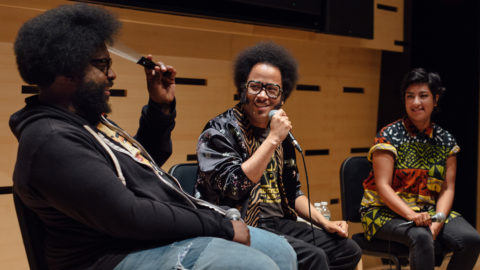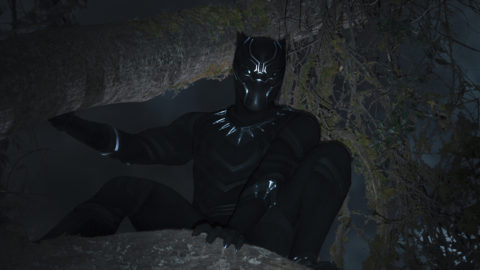By Nicolas Rapold in the January-February 2019 Issue
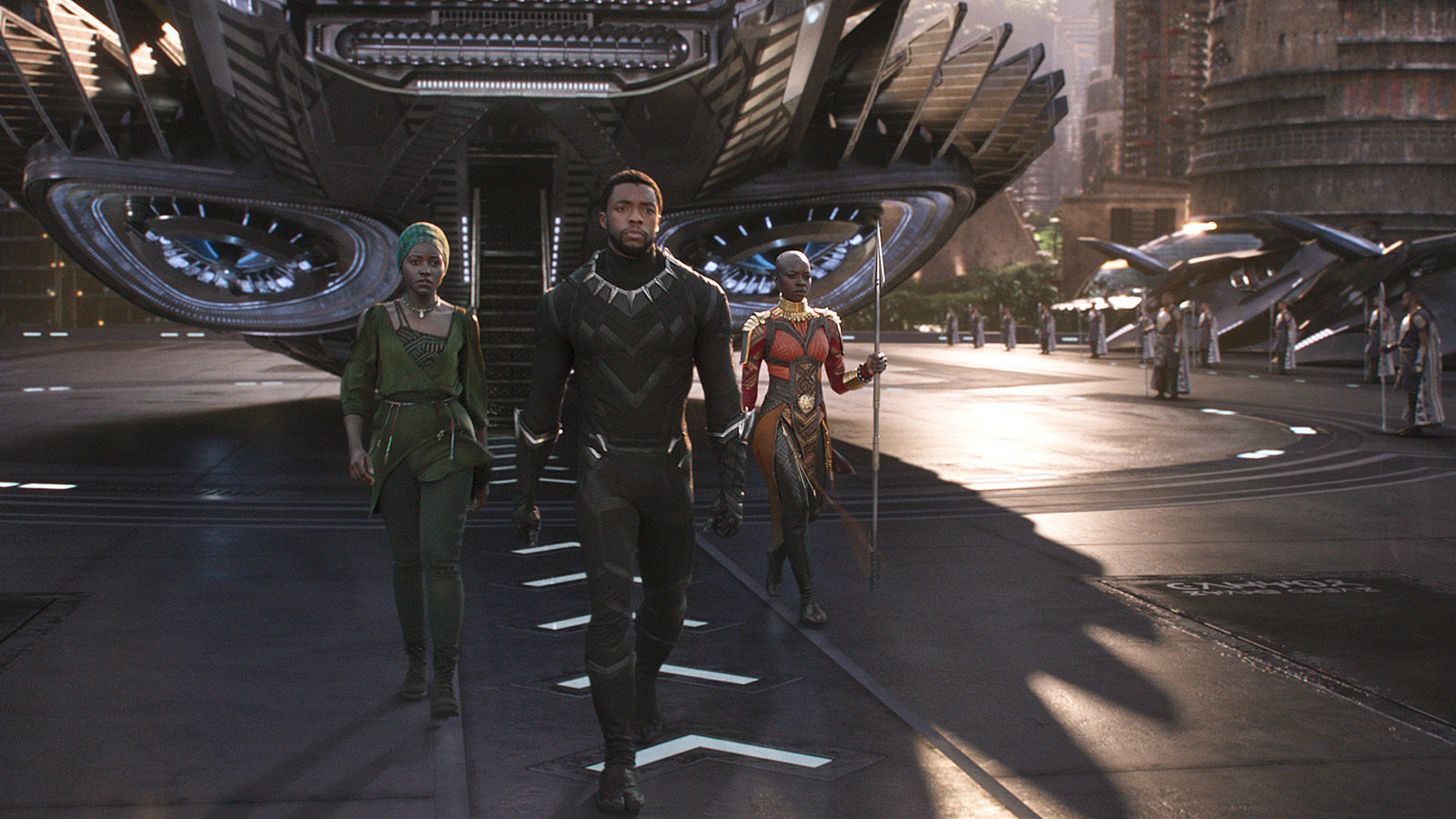
The Future Is Getting Here
By any standard, American cinema changed course this year
Every year that passes under the Trump presidency builds upon its prior injuries to democracy and dignity through the slow creep of normalization: people get used to it, whether they hate it, love it, don’t care, or are too busy or beleaguered to care. That’s why it’s been heartening and soul-stirring to see efforts among filmmakers to counter or confront this toxic tide with something greater, something more beautiful, something to make us both think and act. If one of the deepest pains of the past two-year eternity has been the insensitivity and outright hostility toward minorities demonstrated by our highest leadership, then a corresponding source of hope and joy and insight has been the triumphs of black filmmakers at so many levels in 2018.
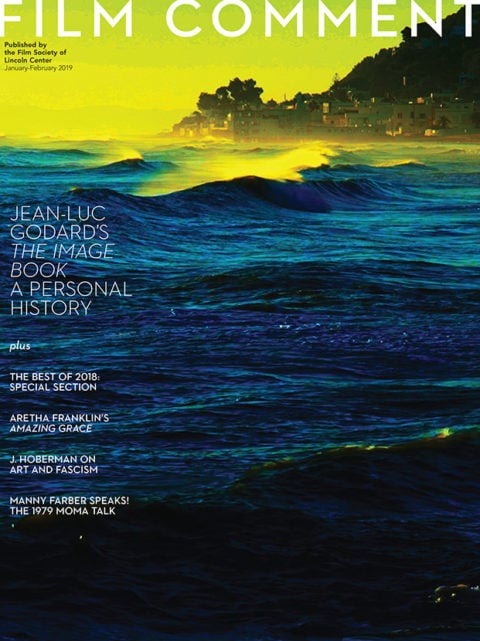
From the January-February 2019 Issue
Also in this issue
The victory of Barry Jenkins’s Moonlight at the Academy Awards in 2017 turned out to be a bellwether for this year’s prominent success for black filmmakers. Scarcely one year after that cliffhanger of a night, Black Panther was steadily cruising toward record box-office earnings in several categories—in most cases, the kind of horserace-watching I would not get very excited about, but in this instance, a landmark accomplishment in American studio cinema for director Ryan Coogler. That might come as a surprise to anyone pegging Film Comment as no friend of superheroes (setting aside our Hulk cover from 2003)—and, in fact, for all the talk in many such films about the impending end of the world/universe, the apocalypse can be rather tedious. By contrast, Black Panther both enacted success and staged a comic-book drama where, instead of the usual weirdly deracinated clashes and hand-wringing, it actually felt like something was at stake: the survival of an independent black culture, taking the form of Wakanda in the film but resonating widely in terms of representation.
Coogler brought a talented dream team: in addition to the charismatic cast, costume designer Ruth Carter, production designer Hannah Beachler, and cinematographer Rachel Morrison, to name but a few. A billion-dollars-plus couldn’t have been brought about by a nicer guy, and in one fell swoop, Black Panther vaporized any number of assumptions about a black-led and -populated cinema (including the particularly ugly apparent commonplace that overseas markets would not come out for a diverse cast). And while Ava DuVernay’s A Wrinkle in Time may not have garnered the same critical support (I for one appreciated its embrace of storybook immediacy), it remains another notch in the belt for a director who has embraced a vital leadership role.
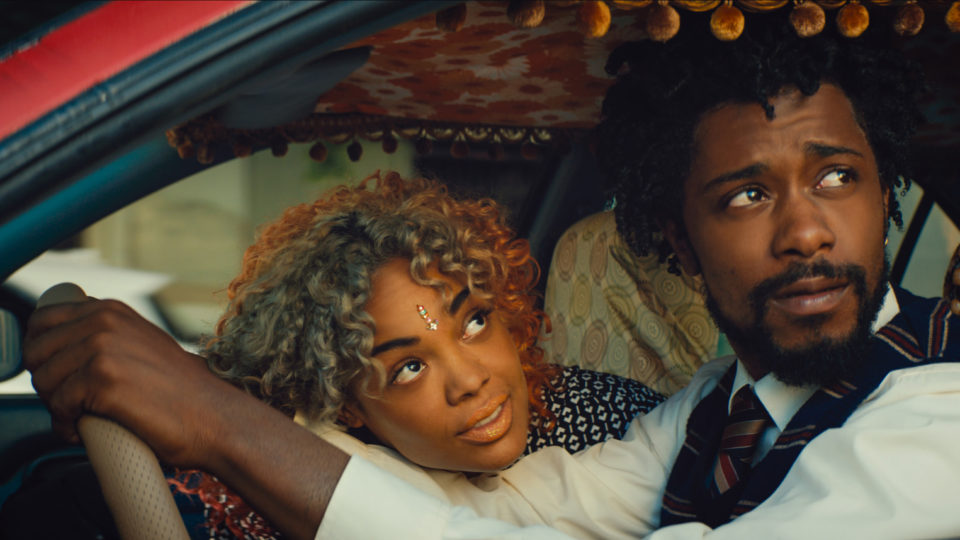
Sorry to Bother You
Perhaps you’re thinking at this point that a Marvel blockbuster is not exactly the most progressive banner to line up behind. The fastest, sharpest riposte is another significant accomplishment of 2018: the radical labor action known as Sorry to Bother You. Using a title that’s itself a sarcastic rebuke to the vicious cycles of mutual devaluation in the service economy, Boots Riley nailed multiple targets at once in making a brutal satire you can dance to (or organize off of) and made us feel in our bones a reductio-ad-absurdum premise whose ideas on race are neither so absurd nor so far removed from reality. I’ll also not forget the baffled reactions I heard after Sundance, where its rough treatment of commodification, brandspeak, and their discontents must have touched a nerve that triggered dismissal.
In its raucous skepticism, Riley drew on a tradition that includes Spike Lee, who himself threw down a gauntlet with BlacKkKlansman. As so much of wide-released American film subsides into a smiling stultification, Lee remains as forthright and critical as ever; it’s appropriate that our era of living under a New York real-estate huckster gets one of its most powerful responses from an elbows-out, indefatigable Brooklynite. Unlike so many period films meant to chart a reassuring arc of progress, Lee conveys that the country’s centuries-old troubles with race and inequality weren’t just dormant and reawakened—they never really went away. In subverting the open-and-shut-case expectation for Ron Stallworth’s undercover story, BlacKkKlansman underlines how it’s not a matter of “fixing” something about the country, but about acknowledging problems and understanding that an inclusive definition of American identity still must be fought for.
Which brings us back to Barry Jenkins, and If Beale Street Could Talk. He’s been justly praised for adapting James Baldwin’s 1974 novel (not necessarily the most apparent Baldwin text to work through) with an eye to its insights on African-American identity, subtly (and not so subtly, with its ending) shifting elements and emphases to reflect upon the present. Likewise Hale County This Morning, This Evening from RaMell Ross finds new ways of depicting black experience, engaging in a constant reworking of form, and Bill Gunn’s newly restored Personal Problems rewrote film history with its depiction of working-class realities and its heterogeneous techniques. So amid all the year-end rituals of ranking and valuation, when everything tends to sound the same and adoration seems to cancel out the big picture or long view, the very boundaries and identity of American cinema were being consistently and breathtakingly redefined and outright revolutionized by the efforts of a handful of African-American filmmakers at center stage. It feels like the beginning of a fundamental shift at the movies.
Nicolas Rapold is the editor-in-chief of Film Comment and hosts The Film Comment Podcast.



